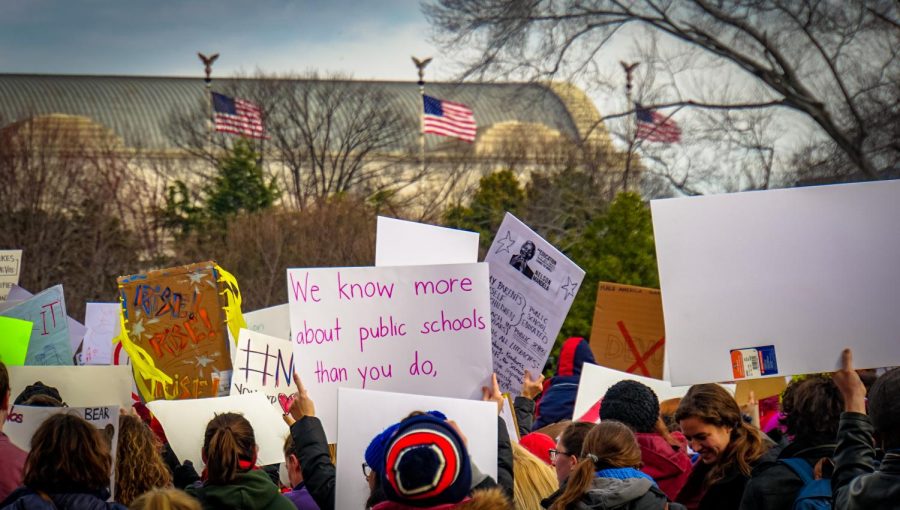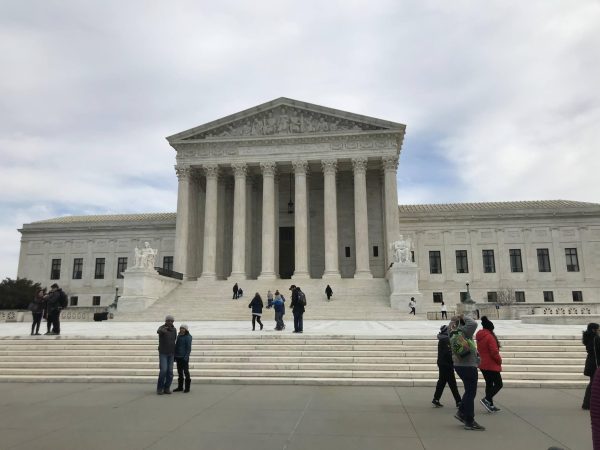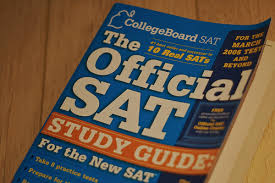A Breakdown of Florida’s Ban on AP African American Studies
April 14, 2023
Florida banned the AP American Studies last month, saying the course has a political agenda with teachings of critical race theory that will indoctrinate students. With this, the ban was also made as it violated Florida law, as it was a deficit of “educational value and historical accuracy.” Weeks later, on Feb. 1 College Board revised its curriculum making recent subject matter such as Black Lives Matter optional, and removement of specific Black literature.
In January, Governor Ron DeSantis of Florida announced that Florida’s Department of Education will no longer include the AP African American Studies as a course. The rejection Florida made on the course is due to topics of study that include Black feminism, Black Lives Matter, reparations, etc. The document produced by the Florida Department of Education reflected on the incorporation of specific Black writers and historians that involve writings of critical race theory, essentially the idea of how race and racism have shaped the laws of America. Presently, it is a topic of debate as some feel it pits races against one another when discussing topics such as white privilege. It is argued that critical race theory should not make students feel guilty for their race or sex when learning such topics, as many states, including Florida, have now created legislation or regulations against such topics. With this, Florida has received praise from many who believe that the idea of critical race is racist, but has received an equal backlash, as banning a curriculum altogether is counterproductive.
The majority of Florida’s reasons are linked to critical race, specifically the idea of swaying the opinions of high school students. For context, one reason was the idea of reparations. Reparations are the idea of making amends for wrongdoings occurring regarding human rights. Reparations are common in war, often due to inhumane actions occurring, but throughout history have also been used for compensation of civil and political rights. Today, it has become a hot topic, as many believe ancestors of slaves deserve compensation as a form of recognition for the treatment their family experienced, as slavery was beyond inhumane. The argument made against discussing reparations is that it serves no balance of opinion, creating a bias. The alleged bias would serve as a source of making the topic of reperations regarding Black history include a lack of historical accuracy. But differently, it is viewed as necessary to include reparations in discussions as it is present in Black America and correlates to Black history.
Along with the concern of a political agenda were the teachings of the Black Power Movement and the Black Panther Movement. These movements included ideas and followings of Marxism which historically displays the idea of (violently) overthrowing the government to gain rights, therefore causing concerns that these teaching can influence students to do the same. . Concerns such as these are often linked with the idea that Gen Z and future generations will be persuaded into believing or associating capitalist governments are harmful.
The overall consensus behind Florida’s decisions was because they felt topics and units were rooted in the idea of critical race theory and the idea that such topics influence students. As the definition or the usage of critical race has shifted in many states based on the nation’s climate, the negativity associated with the concept has grown as well. But as controversial and/or opinion swaying these topics may be, it is argued that it should be taught as it is relevant information to the course and how its history affects today.
Correspondingly, on Jan. 12, Florida’s Department of Education sent a letter to the College Board notifying them that the course violates the state law. This letter also states it violates the ideas of inclusion and that the educational purpose of units are met with a political agenda.
In response, on Feb. 1, less than a month later, College Board released a revised version of their AP African American Studies. This has been met with criticism, arguing that the College Board is complying with the request made by the Florida Department of Education.
To preface, this year the AP African American Studies has been introduced to 60 public schools across the nation. And is planned to be finalized in order for it to become a nation wide curriculum for 2024-2025 school year, although it has received backlash due to some states’ laws against teaching of critical race theory.
But recently discovered in December 2022, College Board stripped down this curriculum to assure no question or backlash from states of these legislations and from parents. The requirements of subject matters have reduced, now only requiring subjects such as slavery and civil rights, now making contemporary subjects, such as Black Lives Matter, optional. Furthermore, the curriculum itself can be refined based on local laws.
Similarly, the course has stripped down Black authors, and some Black literature has been removed, as the themes in the text are in connection to the ideas of critical race theory. These authors have feelings of dejection, as they believe their work fights against injustice in the form of literature and that young adult students should not only be learning about the history, but what the history meant through artistic expression. By featuring Black poetry, art, writings, etc. they feel it can inlighten students in a different way that goes beyond just the facts. It’s argued that even controversial topics like the Black Panther are still a part of African American History. Whether students and/or teachers agree or disagree with it, it held a huge presence in the nation’s history when regarding civil rights. It had many supporters and held many events that did fight for civil rights, even if it wasn’t conventional or peaceful like other movements such as MLK’s protests.
With this, AP courses are a source of mimicking a college level class and for a class to fulfill these sources and documents are necessary for analysis purposes. It is questioned whether the course itself can be successful and serve its intended purpose with this removement.
Overall, the changes College Board have made seem to make controversial or testy subjects optional as every state and the counties within view the necessary needs of their curriculum differently. The recent changes have been made as a reaction to America, not Florida’s ban and disapproval, but the overall concern aimed at both College Board and Florida is that these refinements create a lack of perspective that is necessary for many of these heavy and important topics as it is important to see the whole picture.
Recently, more states have been looking at the AP African American studies and are currently undergoing the process of banning and/or effort for anti-critical race theory lessons. It has more parents questioning school curriculums as well as the reliability of the College Board. Many students and citizens feel Florida’s ban was an abuse of power. Overall, the actions made by Governor DeSantis have resulted in many differences of opinion and concerns that are clearly dividing.












